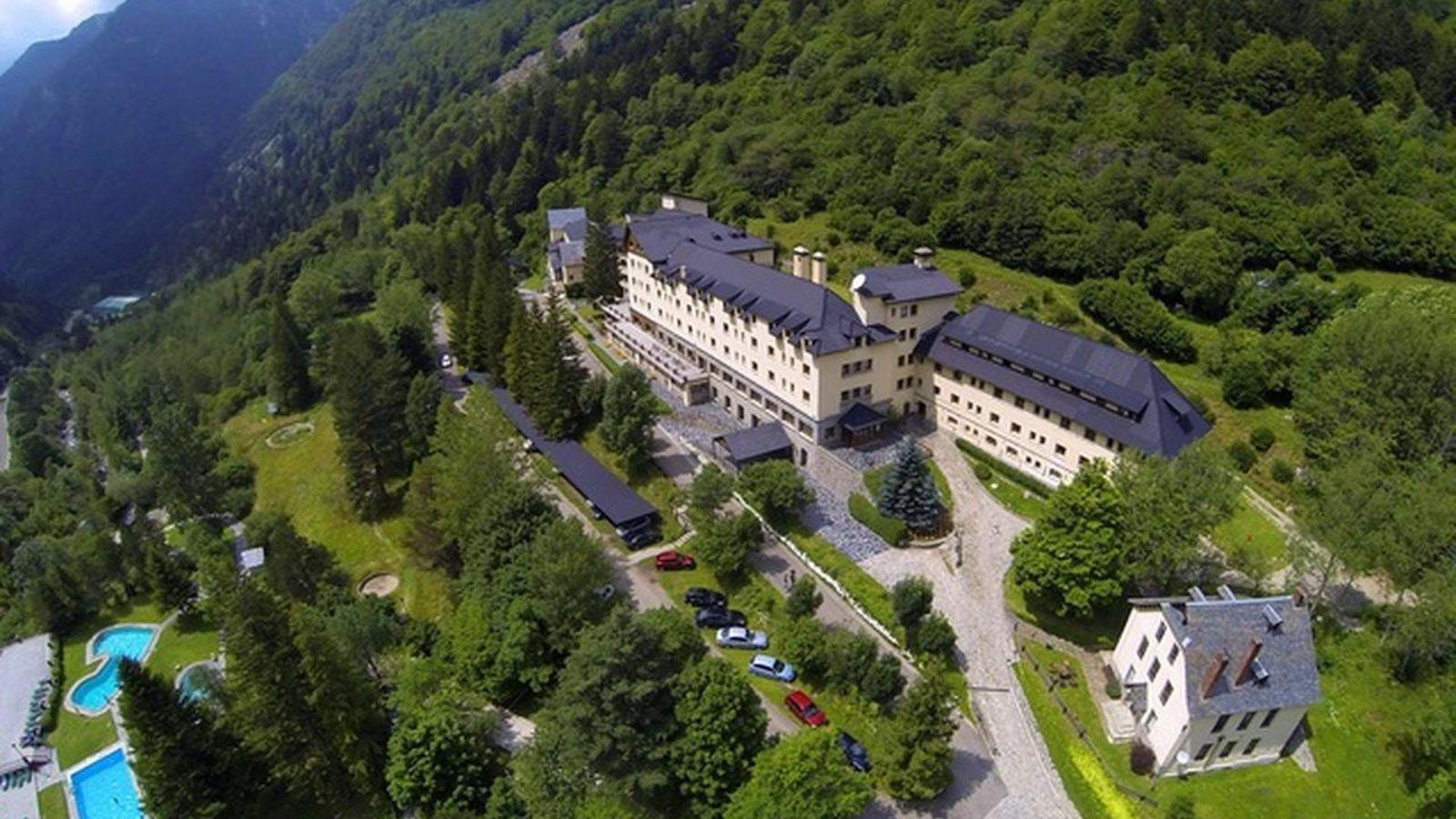In some respects, Caldes de Boí is declining. Or hasn't been updated. I get that feeling when I enter the magnificent porticoed courtyard of the Hotel Caldes—heir to the inn founded in 1732—once filled with shops. There used to be a highly regarded hairdresser's. Not a single one of those shops remains. However, it's worth entering the courtyard to access the chapel of the Virgin of Caldes. On the other hand, in several places I read "Caldas de Boí" in Spanish. No one has had the courage to Catalanize it.
Prodigious water
Caldes de Boí


Romanesque art, nature, and hot springs make an unbeatable combination in Caldes de Boí. Of these three elements, the first thing that attracted visitors to the valley was the waters. Families of Barcelona's bourgeoisie began frequenting Caldes de Boí when the valley's Romanesque churches were not yet World Heritage Sites—nor were they of much interest—and there were no jeeps to take tourists from all over the world up the mountains. This was back in the days when there were no cars, or very few of them. Wealthy Barcelona residents would travel to Pont de Suert by bus and then, along a dirt road, with a donkey and a pile of packages., They would go up to Caldes, where they would stay for many days—sometimes even with a maid—to "take the waters" and to receive care and rest. They would stay for a fortnight, a novena (nine days), or more.
Jordi Pascual Pascual, from the house of Donsa de Erill la Vall, explains all these details to me, next to one of Caldes' most popular fountains, the Tartera fountain, from which flows calcium sulfate water at 42 degrees Celsius, with zinc and silicon. It is called the Tartera fountain because of the large granite scree through which it flows.
Jordi used to come here on foot as a child—or by car if he needed to carry water—and he's continued to come often. This is one of his favorite spots in the valley.
The first thing that surprised me about this fountain is that it says "For Drinking Only." It's curious, because the most common sign on fountains is "Non-Drinking Water." In other words, it's the other way around.
"Years ago, the number of people visiting this fountain was so high that they had to put this message on it. Many would soak for a long time, the men in swimsuits and the women in bikinis, and there would be long lines. People with psoriasis, herpes, bee stings... would put their wound under the jet of water," he explains. "A man came every year. He had lost flesh on his leg due to a military accident, and this miraculous water regenerated the wound and made new flesh grow back," Jordi explains. "It leaves your skin very smooth," he adds.
Now, drinking is more difficult... because of its strong rotten egg stench, although it is very "depurative." If you drink a lot, after five minutes you're already burping - your breath is like rotten eggs - and after fifteen minutes, if you start walking, you'll fart with the same amount of water. smell from the source. "Bad bad, out of the womb."
"It has always been considered the best water in the Caldes de Boí spa. Until recently, glasses of this water were served every morning to guests of the Hotel Manantial, directly in their rooms," says Jordi.
There's water everywhere in Caldes de Boí. The mineral-medicinal water has been bottled for many years. Near the river, which always runs strong, there are several pools. The large ones have warm water, and the small one has very cold water (usually there's no one there!). The fun is to start by getting wet in the small one, and then enjoy the warm water while gazing at the majestic mountain. By the way, you don't need to stay at the Hotel Manantial to access the pools or the thermal services it offers.
Hotel Manantial offers a variety of showers, as well as other "treatments," such as mud therapy and natural saunas (small saunas dug into the mountain: the natural steam and minerals provide a therapeutic effect). The maximum stay in the natural saunas is 10 minutes. You can enter with a basin of cold water to refresh your face and body. This way, instead of 10 minutes, you can last 12.
Staying in Caldes de Boí has become increasingly popular. Despite the price barrier, people from all walks of life enjoy the thermal services and the properties of the waters to prevent or cure chronic illnesses (joint, respiratory, dermatological, digestive, and, increasingly, stress).
Many come with canes, and when they leave, they forget about them because they've rebuilt themselves. And the Manantial Hotel comes to collect canes!
